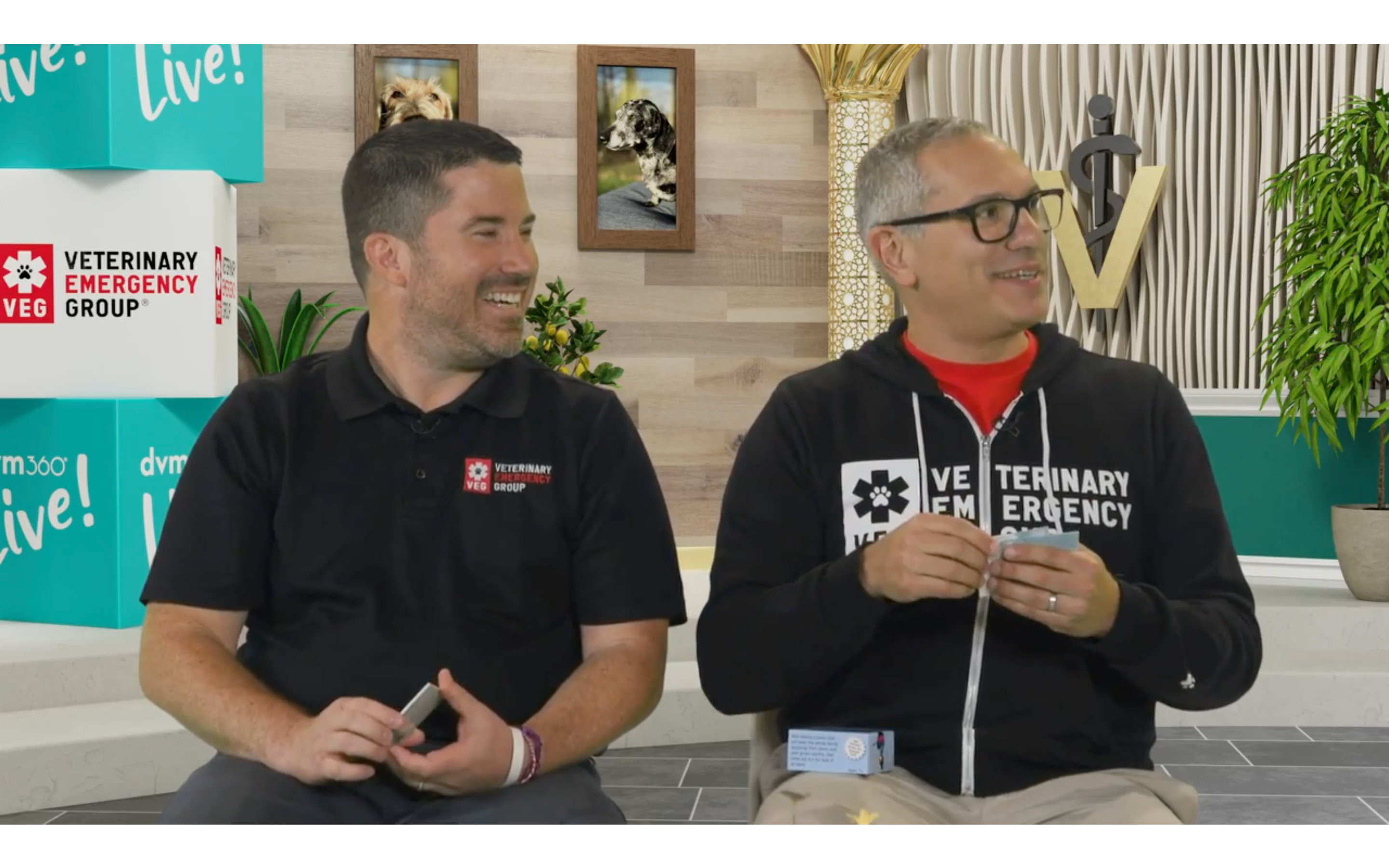Reinventing emergency veterinary medicine
How VEG is improving conditions and culture for veterinary professionals
This content is sponsored by Veterinary Emergency Group.
David Glattstein (left) and David Bessler, VMD (right).

With the fast-paced environment of emergency medicine, it is easy to overlook improvements needed for clinics and staff. Adam Christman, DVM, MBA, of dvm360 Live!, sat down with David Bessler, VMD, and David Glattstein to discuss how their approach to emergency medicine has allowed for Veterinary Emergency Group (VEG) to grow, and how their ideas can be applied to the field at large.
Adam Christman, DVM, MBA: For those who have never heard about VEG, can you describe the company and its mission?
David Bessler, VMD: VEG is the only company in the United States that focuses exclusively on emergency veterinary medicine. By putting our focus there, we were able to analyze what did not work and reimagine it from the ground up. Our mission is to help people and pets when they need it most.
Christman: How does the radically open approach work in real life?
Bessler: If you ask people before they join VEG what their biggest worry is when coming to work, they say doing what they have done for years in front of pet owners. However, if you ask everyone who works at VEG, they will say that is the best thing about their job: keeping people and their pets together. The open floor plan—besides letting people be the heroes they are—also provides transparency to pet owners. Their pets’ lives are being saved, and they should be able to see that. The second change is bringing veterinary nurses and their work to the forefront, when often, they’re hidden in the back of the clinic.
David Glattstein: We tried to look at what works best, ignoring the past. Thirty years ago, people kept their pets outside. Today, they sleep in bed with their owners and are considered family. Clinical care and clinical excellence haven’t caught up to that mentality. At VEG, we are catching up, and we care about pets as much as their families do.
Christman: VEG took a huge stance on noncompete agreements. Why was it so important to do something about such a traditional policy in our industry?
Glattstein: VEG removed noncompetes in 2022, stemming from the previously stated “what works best” mentality. Noncompetes only help large corporations. They don’t help doctors or nurses. It put the responsibility on me and David to create an environment people wanted to work at with personal growth, equity, compensation, and stability. If we can’t do that, we are doing something wrong. It would be nice to see other large companies make this decision too.
Christman: There are a lot of feelings about venture-backed companies. Tell us how VEG addresses these concerns.
Glattstein: Venture-backed companies and businesses are like ice cream flavors, in that they’re totally different. You can only judge us by what we’ve done. When VEG started, there were only 10 doctors, nurses, and assistants working there. Today, we have over 3000 and are the largest employer of veterinary campuses across the country. We can’t guarantee what venture capital is like everywhere, but [David and I] are the largest independent shareholders of the company. We care the most about VEG and building a great company.
Christman: How is VEG, a company so rooted in culture, able to keep it up while rapidly growing?
Bessler: In the industry, we’ve all seen companies grow and lose their culture. At VEG, we define our culture with our core values of openness, togetherness, and heroic help. On top of that, we’ve defined our culture in terms of things we think are great. We have memes and fun things that those inside our culture know. A culture must be about something and have details to go along with it.
Christman: What are some other ways VEG invests in its employees to make emergency medicine a sustainable, long-term career?
Bessler: We invest in our people by giving them the education they need to do their job competently and confidently. They then have opportunities to be center stage with their skills every night when an emergency comes in.
Glattstein: VEG is focused on emergency medicine, so we seek out emergency-related education that helps our vets grow and prolong their career. We just do emergency medicine so we can put all our attention into refining and growing that space.
Christman: What other ways does VEG look to “VEGolutionize” the industry?
Bessler: Every call—no matter the worry from the pet owner—is answered by a doctor, putting the focus on the customer. While I don’t know what we will do next, that is the direction we are heading in: helping people and their pets when they need it most. Through that, we will discover new and innovative things to try.